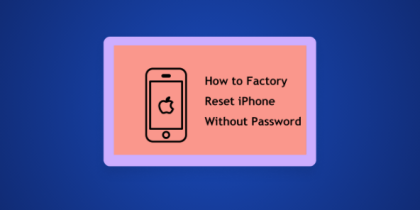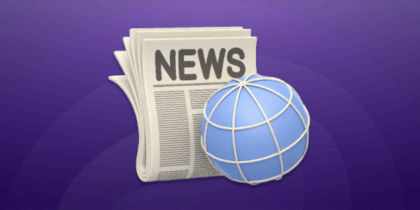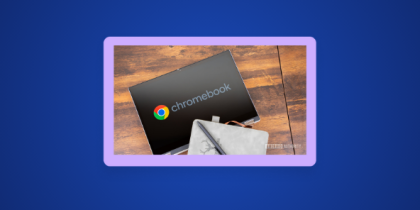When you hear the words dark web, chances are your mind jumps straight to images of hackers, illegal markets, or digital shadows best left unexplored. But the very same technology that fuels those shady corners of the internet also empowers some of the bravest people on the planet, journalists and whistleblowers.
Governments monitor emails, corporations track clicks, and censorship walls rise higher by the day; truth doesn’t travel freely. For reporters exposing corruption or sources risking everything to leak sensitive documents, one slip of identity could mean prison, or worse.
Your email could be compromised.
Scan it on the dark web for free – no signup required.
Anonymity networks like Tor create shields against prying eyes, ensuring stories of injustice reach the world. We will discuss how the dark web is protecting journalistic sources so that freedom of speech survives.
Why Journalists Need Extra Protection Today
Being a journalist has never been easy, but today the risks are higher than ever. It’s not just about uncovering stories, it’s about staying safe while doing so. Modern reporters face an environment where every email, phone call, or online search can be tracked.
The Risks Journalists Face
- Surveillance: Governments and intelligence agencies use advanced spyware to monitor journalists. According to a 2022 report by Reporters Without Borders (RSF), over 80 journalists worldwide were confirmed targets of Pegasus spyware, a tool capable of accessing private messages and even activating cameras.
- Censorship: In countries like China, Iran, and Russia, entire news outlets are blocked, while independent journalists risk imprisonment for publishing “unapproved” content.
- Political Pressure & Retaliation: Journalists challenging powerful figures often face harassment, travel restrictions, or worse, life-threatening violence.
The murder of Saudi journalist Jamal Khashoggi in 2018 remains one of the darkest reminders of how dangerous speaking truth to power can be. Investigations later revealed that Khashoggi and people close to him were targeted by Pegasus spyware before his assassination (Citizen Lab and Amnesty International reported on these findings). This wasn’t just about silencing a voice, it was about sending a message to all journalists that surveillance can be deadly.
Stories like Khashoggi’s specify why journalists, especially those in authoritarian states, need stronger digital protections. When your every keystroke or call can be monitored, anonymity isn’t a luxury, it’s survival. That’s why more and more reporters are turning to tools like the dark web, Tor, and VPNs to shield their work and safeguard their sources.
How the Dark Web Provides a Safe Haven
When mainstream communication channels are monitored, where can truth-tellers turn? For many journalists and whistleblowers, the dark web has become a refuge, a place where sensitive files can be shared without leaving digital footprints.
Safe Spaces for Leaks
Unlike email or cloud storage, which are easy targets for surveillance, the dark web offers anonymous drop points that shield both the leaker and the journalist. Tools like SecureDrop, used by outlets such as The Guardian, The New York Times, and ProPublica, allow sources to submit documents without revealing their identity or location.
Similarly, GlobaLeaks empowers NGOs and investigative groups to set up anonymous reporting platforms in regions where press freedom is under attack.
Real-World Relevance
The importance of these tools isn’t theoretical, it’s playing out right now. In 2023, investigative reporters at OCCRP (Organized Crime and Corruption Reporting Project) revealed how whistleblowers in Eastern Europe used encrypted platforms to share evidence of massive financial crimes that would have been impossible to leak safely over normal channels.
Likewise, journalists in countries like Iran and Myanmar have leaned on dark web-based tools to bypass firewalls and censorship during internet blackouts.
Why It Matters
For whistleblowers, anonymity is survival. The dark web helps them by:
- Protecting their identity from governments or corporations.
- Enabling them to submit information even when the internet is heavily censored.
- Ensuring that even if a newsroom is hacked, the whistleblower’s trail remains hidden.
Far from being just a hub for shady activity, the dark web acts as a place where truth can survive, and sometimes, where history-changing revelations are born.
Tools Journalists Use on the Dark Web
The journalists rely on a toolkit designed to protect sources, shield communication, and keep stories flowing even under censorship.
Tor Browser
By routing traffic through multiple relays across the globe, Tor hides users’ IP addresses and makes tracking nearly impossible. It’s simple, free, and has become a standard for reporters who need to visit onion sites or connect with sources without leaving digital footprints.
Secure Messengers: Private Conversations
While Tor protects browsing, journalists also need private ways to talk to sources. That’s where secure messengers like Signal, Session, and Wire come in. These apps use end-to-end encryption so only the sender and receiver can see the messages.
When paired with Tor, they add an extra layer of protection, making it much harder for prying eyes to intercept conversations.
Encrypted Email + PGP: Locking Down Sensitive Info
Email might seem old-fashioned, but it’s still a staple for investigative reporting. With PGP (Pretty Good Privacy) encryption, sensitive emails are scrambled so only the intended recipient can unlock them. Many whistleblowers use PGP to safely pass on files or instructions to journalists, ensuring that even if someone intercepts the message, it’s unreadable without the private key.
Real-World Adoption: Newsrooms on the Dark Web
This isn’t just theory; major media outlets are already embracing these tools. The New York Times, BBC, and ProPublica all run onion sites on the dark web for readers in censored countries to access reporting securely.
For whistleblowers, these platforms also act as a safer way to reach out directly to trusted journalists. It’s proof that the dark web, often painted only as a dangerous place, has a legitimate and powerful role in protecting press freedom.
The Challenges Journalists Still Face
The dark web gives journalists powerful tools, but it also comes with a host of challenges that demand both caution and savvy in equal measure.
1. Accessibility Isn’t a Given
Sure, the dark web tools like Tor aren’t costly, but let’s be real, they’re not plug-and-play for everyone. A recent study found that journalists with more experience and a solid “security mindset” are far more likely to safely use encrypted tools, while novices struggle to stay safe even when using the same technologies.
2. Legal Risks and Suspicion
In some countries, just using an onion site can raise red flags. Take Italy, for instance: journalists are taking the Meloni government to court after revelations that military-grade spyware was used to target reporters and activists, surveillance that flew under the radar of legal protections. When simply visiting the dark web can land you on someone’s watchlist, journalists have to tread very carefully.
3. Malware & Phishing, Even Dark Web Users Aren’t Safe
Believe it or not, the dark web isn’t immune to scams and cyber threats:
- This year, credential theft soared by 160%, fueled by AI-powered phishing, stealer malware, and malware-as-a-service offerings available on dark web forums.
- Security researchers also identified a risqué new spyware called Stealerium, originating from phishing emails, that silently records webcam feeds and browsing habits to exploit victims.
- Even image files (SVGs) have turned dangerous. A recent phishing campaign hid malware within such files; more than 500 were flagged, and many were bypassing antivirus filters completely.
Even as the dark web offers anonymity and security, it isn’t a free pass. Journalists must constantly balance accessibility, legality, and cybersecurity. Fortunately, this is becoming a mainstream concern, and newsrooms are increasingly rolling out training, tools, and protocols to explore these risks safely.
Enhancing Security with VPNs
While Tor is the main gateway to the dark web, pairing it with a VPN takes security to the next level. Using Tor alone hides your browsing by bouncing your traffic through multiple relays. But your ISP (Internet Service Provider) can still see that you’re connected to the Tor network, which, in some regions, is enough to raise suspicion. That’s where a VPN comes in.
When you connect to a VPN before opening Tor, your ISP only sees an encrypted tunnel to the VPN server, not that you’re using Tor. This extra layer of protection makes it much harder for governments, hackers, or even network admins to trace your activities.
Why Journalists Prefer the Combo
- VPNs hide your real IP before your traffic even enters Tor, keeping your identity doubly shielded.
- Some networks block Tor traffic altogether. A VPN disguises it, allowing journalists in restrictive environments to connect without tipping off censors.
- VPNs add their own encryption on top of Tor’s, reducing the chances of data leaks or snooping.
For journalists handling sensitive leaks or communicating with whistleblowers, Tor + VPN isn’t just good practice, it’s best practice. It creates multiple barriers against surveillance and censorship, making it harder for anyone to link an online identity back to a real person.
Conclusion
Without the dark web, many of the world’s most important stories, the kind that hold governments and corporations accountable, might never have seen the light of day.
While it’s easy to focus on the dark web’s darker reputation, its role in press freedom cannot be ignored. It offers safe spaces for sources, encrypted pathways for communication, and platforms that let newsrooms publish in places where censorship is the norm.
For journalists and their sources, the dark web means the difference between silence and a story that changes the world.








